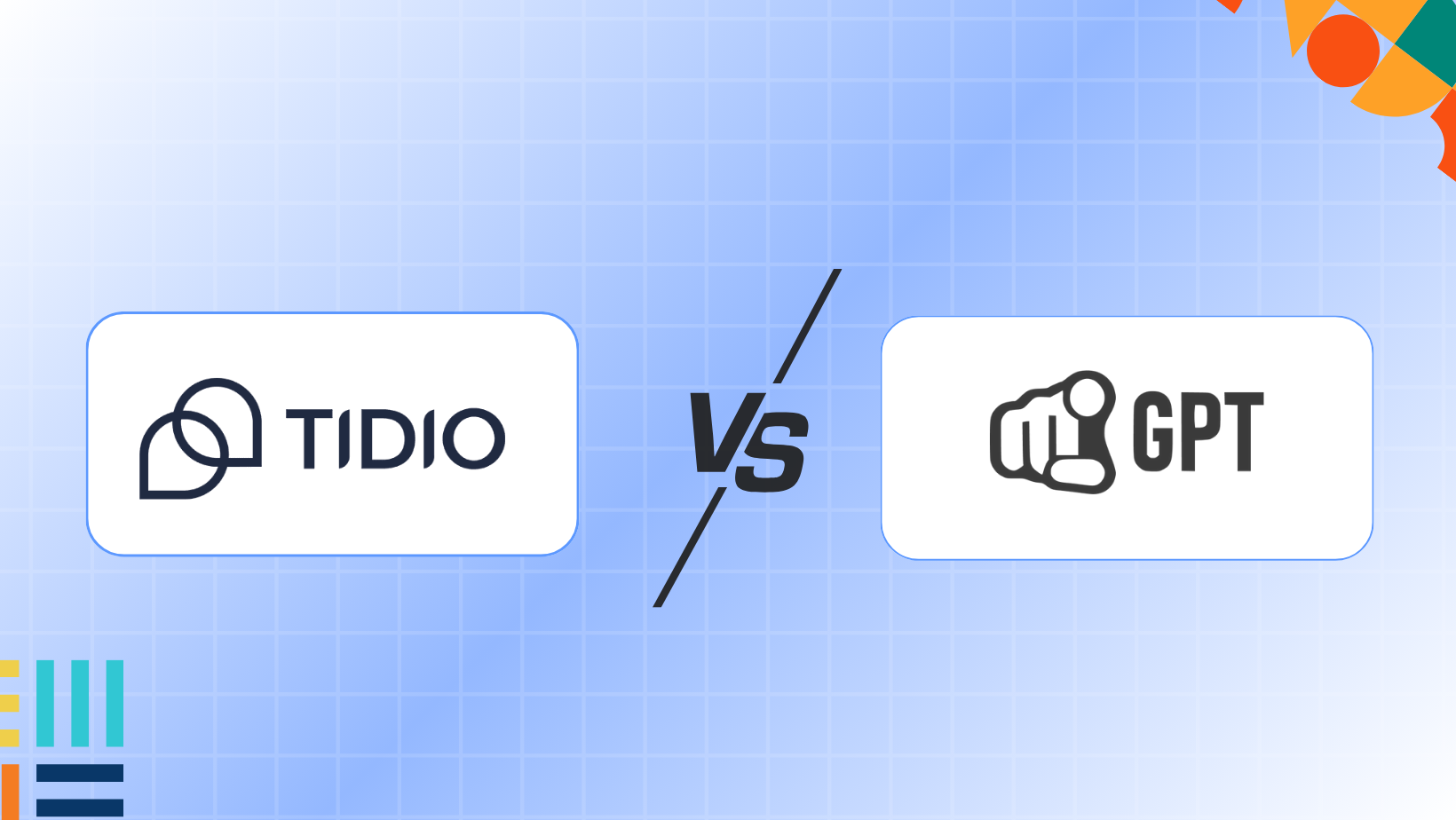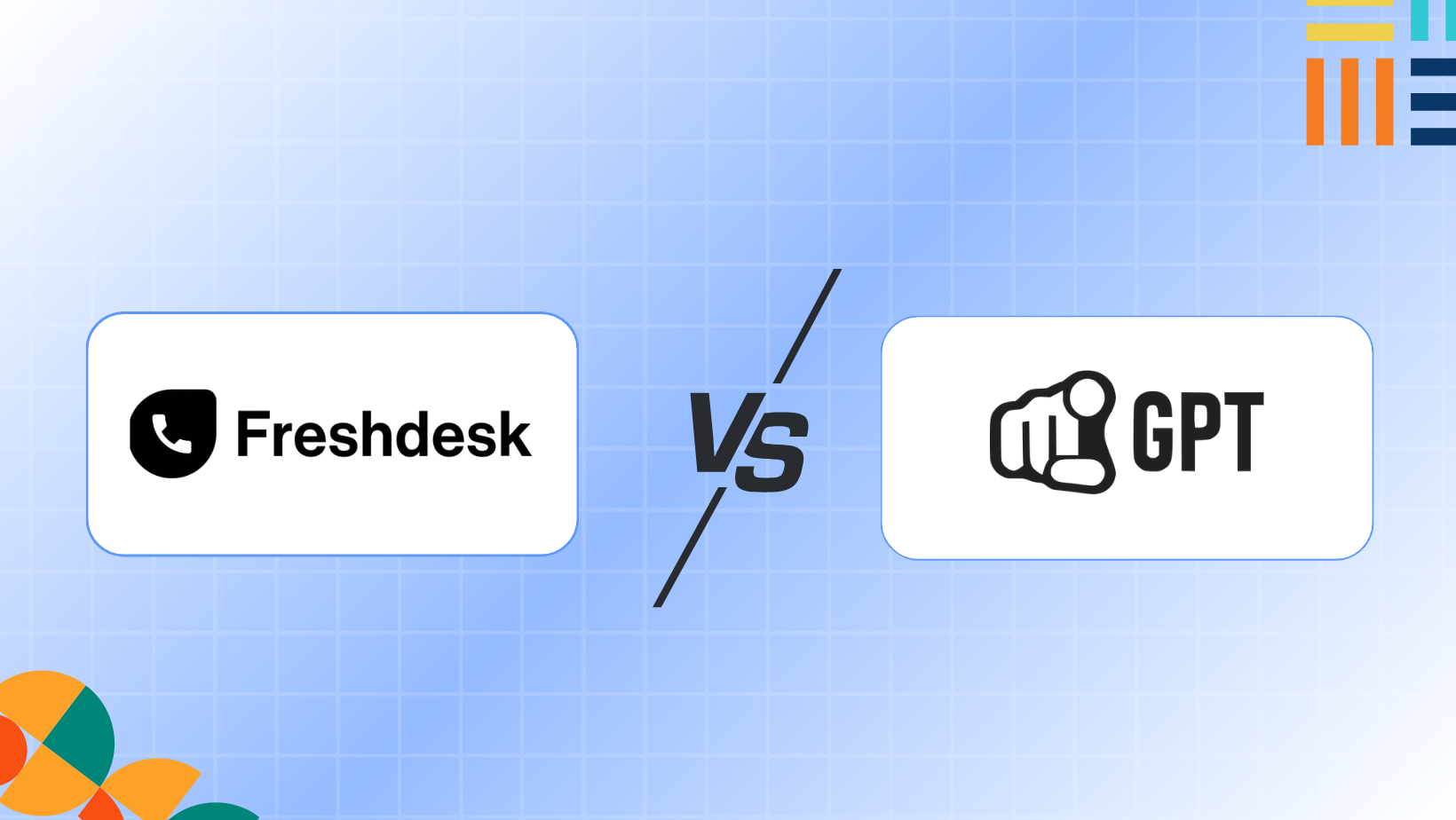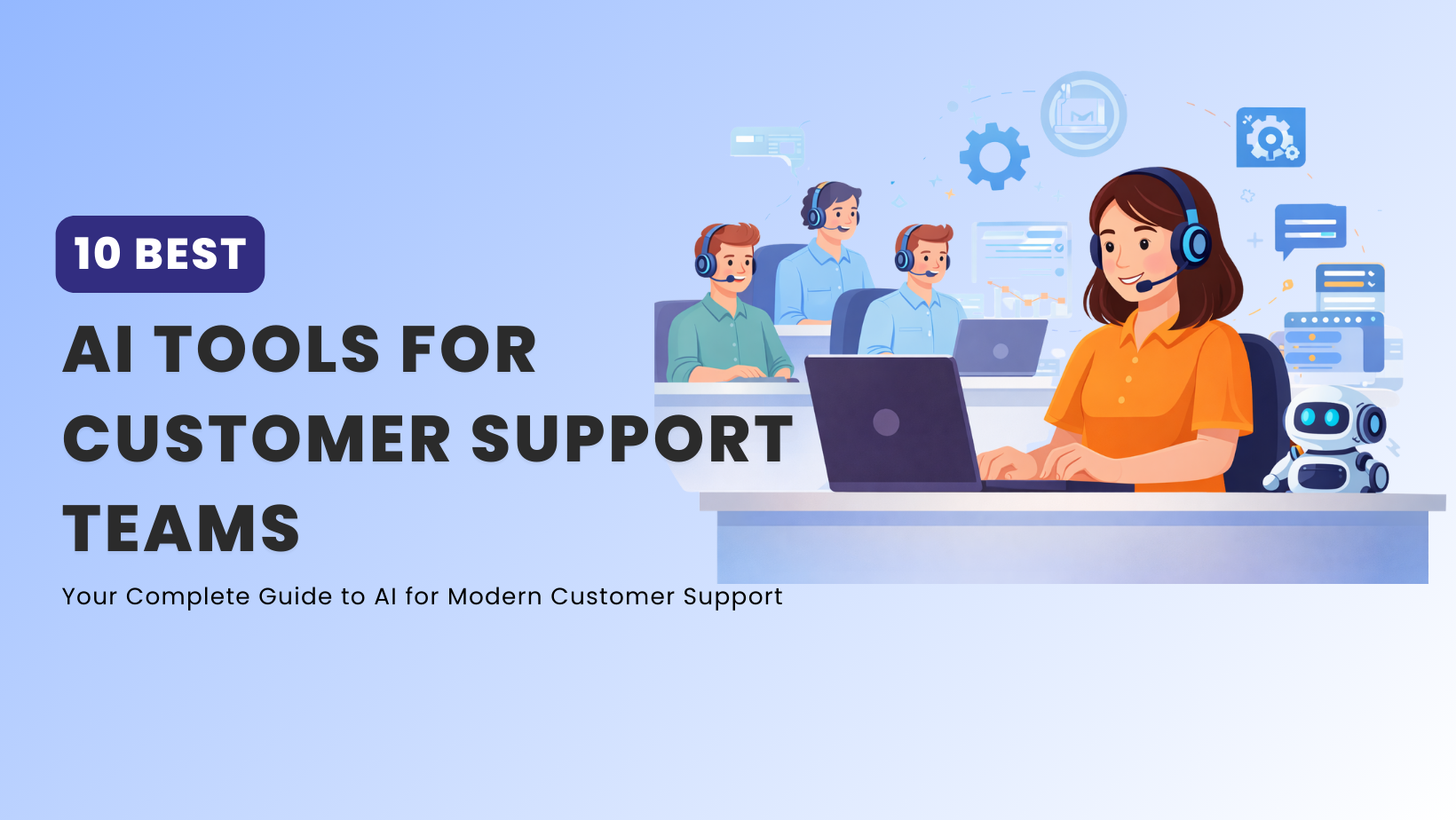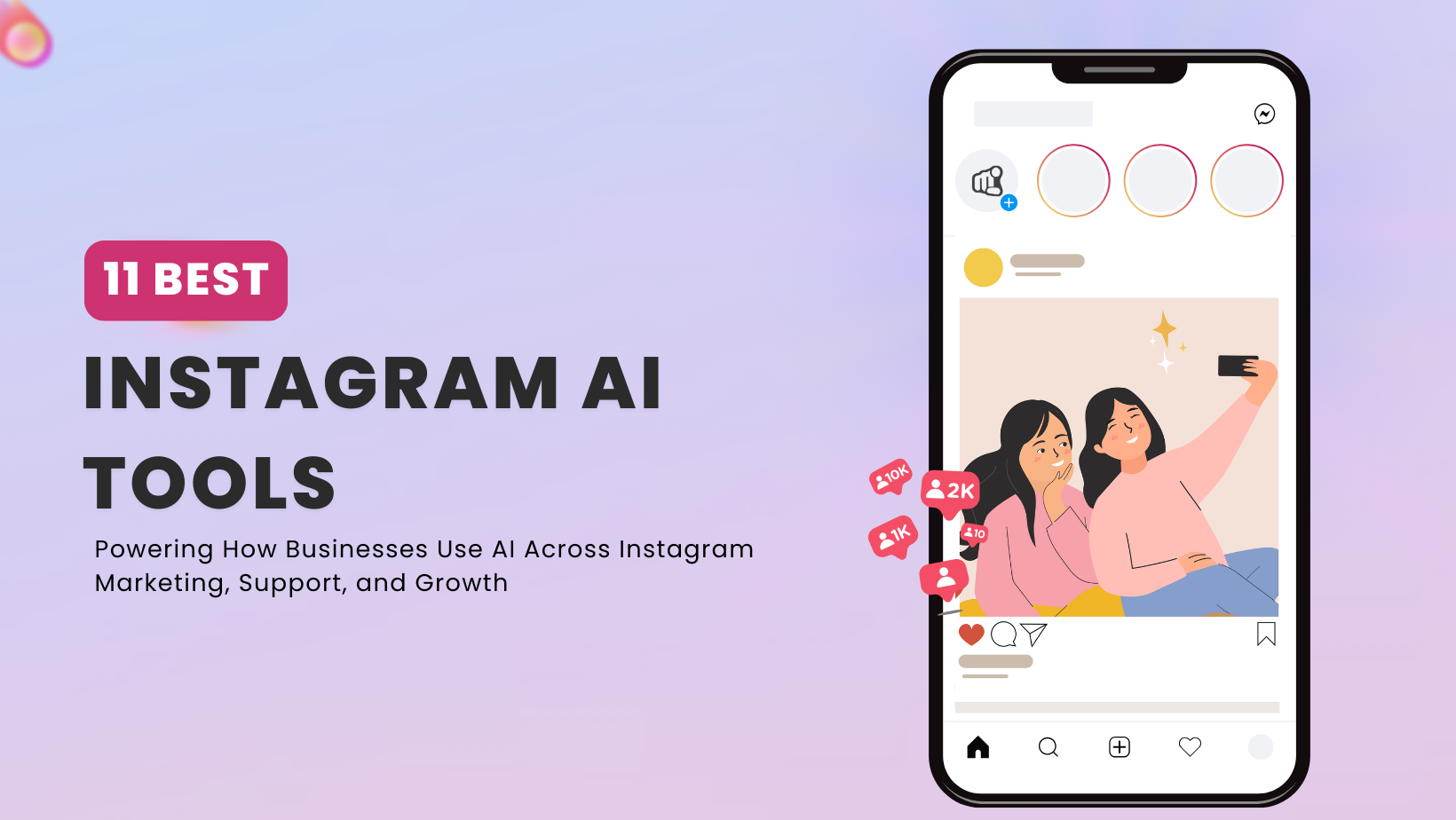YourGPT or Tidio? Finding Your Best Customer Support Fit for 2026



Customer service platforms are more than simple tools for answering questions. Choosing the right solution, such as YourGPT or Tidio, goes beyond comparing features or subscription costs. The real impact becomes clear once your team relies on the platform every day.
How well it integrates with your current systems, what AI capabilities it offers, how easily it adapts as your business expands, and how quickly issues are resolved by the support team all shape its real-world value. These factors can be the difference between a platform that strengthens customer relationships and one that creates constant frustration.
In this comparison between YourGPT and Tidio, we highlight their core capabilities, the flexibility each offers, the value they bring to businesses of different sizes, and how effectively they support ongoing operations. By the end, you will have practical insights to decide which platform best matches your customer service goals in 2026.

Tidio is designed for small businesses that want to add chat support to their websites quickly and affordably. Its main strength lies in providing live chat with chatbot automation so visitors get instant responses without long setup times.
For teams looking to answer FAQs, capture leads, and support customers with minimal complexity, Tidio offers a practical solution. It integrates with popular platforms such as Shopify, WordPress, and Messenger, making it easy to connect with existing tools.
Tidio is a good choice for businesses with simple live chat needs. It delivers reliable website chat widget with basic AI automation, giving teams an affordable way to improve customer support without adding complexity.

YourGPT is built with an AI-first approach while keeping humans in the loop. It can independently resolve up to 78% of customer queries, ensuring fast and accurate support without human intervention. When a conversation requires personal attention or added sensitivity, the system smoothly escalates the chat to a live agent. This combination of high autonomous resolution with seamless human handoff gives businesses both efficiency and reliability.
Companies can train YourGPT on a wide range of data sources, such as documents, websites, spreadsheets, and knowledge bases. From there, it can automate workflows like updating CRM records, routing tickets, or sending follow-up emails. The no-code workflow builder makes these setups accessible to both technical and non-technical teams.
The value of YourGPT comes from its adaptability. With regular updates, enterprise-level security, and user feedback shaping its roadmap, the platform grows alongside the businesses that use it.
When comparing YourGPT vs Tidio, the difference comes down to what each platform is built for. Both YourGPT and Tidio allow businesses to provide customer service, but they were designed with very different goals.
Tidio is designed for live chat with chatbot automation for websites, helping teams handle FAQs and basic queries. Its strength lies in being straightforward and affordable, making it a fit for small businesses that need quick setup and minimal complexity.
YourGPT is an AI-first automation platform built for businesses that need more than basic chat support. Unlike tools limited to answering FAQs, YourGPT is designed to handle complex processes and workflows.
It can:
Because it can be trained on diverse company data, YourGPT adapts to each organisation’s needs. It also works across multiple channels including websites, messaging apps, email, and phone so it fits directly into daily operations.
YourGPT goes beyond chat. It provides an automation layer that integrates with business tools and scales with enterprise requirements.
The difference is clear:
| Feature | YourGPT | Tidio |
|---|---|---|
| AI First | ✅ | ❌ |
| Advanced AI Capabilities | ✅ | Limited (basic chatbots) |
| Multi-channel Deployment | ✅ | ✅ |
| Integration Ecosystem | Direct integration with CRM, Social Channels, eCommerce | Limited (Shopify, WordPress, Messenger) |
| Customization & Workflows | Advanced, No-code Builder | Simple rule-based bots |
| Voice AI Capabilities | ✅ | ❌ |
| Email Integration | ✅ | ❌ |
| Mobile App | ✅ | ✅ |
| Data Training Flexibility | Extensive (documents, websites, videos, Confluence) | Limited (FAQs, simple inputs) |
| Human Escalation | ✅ | ✅ |
| Self-learning Capability | ✅ | ❌ |
| AI Helpdesk Support | ✅ | ❌ |
| Image Understanding | ✅ | ❌ |
| Scalability | Enterprise Ready | Small Business Focused |
Both platforms offers affordable plans, but the way their value grows as your needs expand is quite different.
Tidio + Lyro AI Agent: Tidio’s Starter plan costs about US$24.17/month (billed annually) for live chat and basic automation. The Lyro AI Agent is around US$62.50/month for 100 conversations/month. As you need more conversations or more advanced automation, costs go up.
YourGPT Professional Plan: US$129/month when billed monthly, or a discounted annual rate if paid yearly. It includes features such as 5 chatbots, support for 500 webpages, 100 documents, 30 million AI credits, integrations, multiple channels, tools like AI Studio and API/Webhooks, and seats for 5 team members.
Value comparison: For small websites with light automation, Tidio is cost-effective. For teams needing multi-channel automation, more documents, workflows, integrations, and more capacity, YourGPT’s Professional plan offers more built-in value without needing many separate add-ons or upgrades.
Tidio is ideal for small businesses needing quick website chat. YourGPT is better for teams seeking advanced AI, multi-channel support, and custom workflows.
Yes, YourGPT offers affordable starter plans for small teams, with room to scale as the business grows.
At the entry level, Tidio is cheaper. However, YourGPT includes more features per plan, which may reduce the need for additional tools and lower overall costs.
No, Tidio is mainly designed for website chat. YourGPT supports WhatsApp, Telegram, Messenger, Instagram, and other channels.
Yes. YourGPT supports both inbound and outbound voice AI calls. Tidio only supports text-based chat.
Tidio can be set up in minutes for basic website chat. YourGPT takes more time but offers greater control and customization.
YourGPT integrates with over 500 apps, including Salesforce, HubSpot, Shopify, and Slack. Tidio supports integrations with basic eCommerce and CMS tools.
YourGPT is SOC 2 Type II and GDPR compliant, offering enterprise-grade security. Tidio includes standard privacy protections suitable for small teams.
Yes. You can migrate your data to YourGPT and expand to new channels and workflows without starting over.
Enterprises typically choose YourGPT for advanced AI, workflows, voice support, and compliance. Tidio is better suited for smaller businesses.
Tidio and YourGPT are designed with different goals in mind, and the choice between them depends on how far you want automation to extend in your business.
Tidio keeps things simple. For small businesses, it is a fast way to add live chat and basic chatbots to a website without extra complexity. It is affordable, easy to configure, and useful for reducing repetitive questions so teams can focus on higher-value work.
YourGPT addresses a broader set of needs. Beyond answering FAQs, it supports reasoning across multi-step requests, integrates directly with CRMs and other systems, and automates actions across channels such as WhatsApp, Messenger, Telegram, email, and voice.
Its ability to train on diverse company data and hand off seamlessly to human agents means it can become part of sales, support, and operations not just conversations.
If your goal is limited to website chat without AI, Tidio is you can choice. If you are preparing for growth and want AI automation that works across channels, and teams, YourGPT offers a platform that delivers measurable efficiency while adapting to more complex requirements over time.
YourGPT gives you AI chat and voice agents that automate support, capture leads, and connect with your tools in minutes.
No credit card required • Full access • Limited time offer

TL;DR CustomGPT.ai offers basic no-code chatbot features. This blog compares 10 alternatives with stronger automation, integrations, and flexibility for scalable customer support. CustomGPT is a no-code AI chatbot platform that allows businesses to build question-answering systems using documents and internal knowledge bases. It is primarily designed for retrieval-based use cases, where users ask questions and […]


TL;DR: The Core Difference YourGPT Built around AI agents that handle conversations, run workflows, and resolve issues on their own across channels. The goal is to reduce incoming support volume by solving problems before they reach a human. Freshdesk Built around structured ticketing. It focuses on organizing queues, managing SLAs, and tracking agent performance. Humans […]


TLDR Zendesk works well for ticket-based support, but it can feel limiting as teams rely more on automation and multi-channel conversations. This guide compares 7 practical Zendesk alternatives that reduce manual handling and let AI manage common requests across chat and messaging tools Zendesk is one of the popular customer support platform has been around […]


WooCommerce gives store owners flexibility, but that flexibility comes with trade-offs as a store grows. Over time, pages slow down as plugins accumulate, carts get abandoned without obvious reasons, and customer questions start consuming more time than expected. These issues rarely appear all at once, but they compound quickly and directly affect revenue. After working […]


AI customer support tools now form a core part of how many teams handle growing contact volumes and rising customer expectations. At the same time, the market has become crowded, with many similar-looking products and overlapping claims, which makes evaluation harder for support leaders. The AI customer service segment grew from about $12 billion in […]


If you run an Instagram account for business in 2026, you already feel the pressure. The platform has 2 billion monthly users now. About 44% of people on Instagram shop every week, and most expect you to reply to their messages in under an hour. Between creating posts, Stories, and Reels, answering DMs, responding to […]
